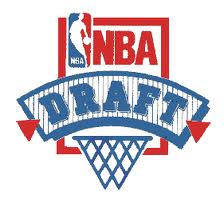ncaa - nba draft declaration is bananas...
DID YOU KNOW that student-athletes are not actually members of the NCAA? Is this enough time for 19-somethings to make such a monumental decision without going through the entire pre-draft process. And on top of that, their safety net is being removed for those who might later realize they made a bad decision. Famous lottery slogan that ignores the long odds... "a dollar and a dream!" In an ideal world, only 7-10 underclassmen per year would leave early for the NBA. The rest would be patient, get a meaningful education and their hard work and perseverance would be financially rewarded. Yes, it makes sense for the vast majority of players to put their hoop dream on hold until after college, but try convincing a 19- or 20-year-old basketball player with stars in his eyes to wait another year. Every year 50 or so young men ignore the evidence and enter the draft even if they have little chance to make an NBA roster. Defending an insane system Does anyone in the NCAA governance structure with actual power take the side of athletes? What about the NCAA's Student Athlete Advisor Council (SAAC), which allegedly represents the interests of college athletes... By the way, did SAAC offer any opposition during the last couple years when the NCAA all but eliminated the test period? Not that it even matters since the SAAC is powerless by design. And do not forget: the only basketball players who would be able to return to school would be young men who actually want to be in school and took steps to protect their college eligibility. Imagine that. Florida State coach, Leonard Hamilton, has publicly supported eliminating the evaluation period, telling the Associated Press in 2009: "too many kids are putting their names in and they're taking their names out. Their names shouldn't be in there in the first place...You have so many kids making poor decisions, it's obvious some of these kids are getting poor advice." |
 |
.jpg) |
|
A history lesson:
The NCAA membership instituted various forms of
underclassmen "testing the NBA waters” back in the
mid-1990s. By NCAA official bloggers' logic, David
Pickle, the media should have been complaining about
this athlete-friendly rule for the last 15 years.
And yet...the media has spent the last 15 years not
championing the cause of college basketball coaches
who "struggle to determine their rosters." This history will NEVER, EVER repeat itself... Let's take a historical view of college players turning pro before their eligibility expires. What if I told you, once upon a time there was a college basketball star selected 6th in the NBA draft who was offered a lucrative pro contract, but returned to school to play his senior season. Not only that, but this player led his team to a 33–1 record and lost in NCAA National Championship game. Was this a compliance oversight? No way could an NBA-drafted player participate in an NCAA competition. Surely, the team's Final Four appearance was vacated. Or was it? The player I'm talking about was Larry Bird who along with Ervin "Magic" Johnson, changed college basketball…for the better. Bird was selected in the 1978 draft by the Boston Celtics. Back then, this was legal: A player was automatically eligible to be drafted four years after high school, even if they still had college eligibility. Bird got to make a truly informed decision: The marketplace told him exactly how much his basketball skills were worth—and he could weigh that against the benefits of playing another season of college basketball. And the college basketball world was better because Larry Bird was allowed to play his senior season. 
So what is the solution? First off, we don't need more NCAA rules. Institutions are perfectly suited to make these calls. A coach who does not want to be left in limbo can already force the issue: Don't renew a player's one-year scholarship. Just say, sorry, young man, if you can't decide by a certain date, we are moving on. Another coach may see the benefit of keeping the door open if a player's NBA hoop dream is not quite yet a reality. This is what some would call compassion. It's also good business, especially since the goal is to win games. My overarching complaint against the system for underclassmen going pro is deeper than this particular rule. I actually do not think players should have to declare for the draft. You heard me. They ought to be allowed to find out what their actual market value is, then decide. Just like any other student exploring the job market. Get an actual offer, then accept the best one. Or forego immediate income and continue with school. The NBA will never tolerate a system that allows drafted players the option to return to school (like baseball). But there's a reasonable compromise: Follow the NBA's guidelines for withdrawing from the draft (currently set at 10 days prior to the draft). By this point in the draft process, there is far less uncertainty than in early April. Then watch college basketball spin off its axis. Or not. A slight loophole (which the NCAA won't tell you) Keep in mind, there are three important dates: 1. The NCAA's withdrawal date for those who want to return to college - April 10th, 2. The NBA's date declaration date, which is 60 days prior to the draft, a date that is collectively bargained - this year that date is April 24th, and 3. The NBA's withdrawal deadline, which is 10 days prior to the draft. If a player is still on the fence or even if there is a slight chance he might want to return to college, the best strategy is not to file with the NBA prior to April 10th and keep the college option alive. I'm not sure how much additional information can be gathered in just two weeks, but after the NCAA's deadline passes, there's no turning back. Is this ethical? Please. If a player is turning pro, he should only be concerned with NBA rules, not NCAA rules. And a note to my friends at the NBA and NBPA: In the upcoming CBA negotiation, please shorten the official declaration date from 60 to 30 days, a move that would greatly reduce the burden of the NCAA's absurd rule. Pickle said it best in an article "The NCAA is a greedy, money-sucking, self-serving, soulless entity that’s lost sight of its mission statement." Regardless of the decision, if someone you truly care about makes a bad decision, you don't kick them to the curb...you help them get back on track. |
| Tweet |
|

We are always
looking for additional people to submit stories, scores, stats, photos,
video, etc...
| NOTE: We are proud to announce that for the entire month of April, S.C. Fitch Enterprises, and all of its affiliates including Amateur Sports News Network, ASNN365.com, Amateur Sports Gallery and Kennel Sports Talk will be honoring this month as National Autism Awareness Month®. Autism is a complex developmental disability that typically appears during the first three years of life and affects a person’s ability to communicate and interact with others. Click here for more information. |
FOLLOW US...
 |
 |
 |
 |
 |
HTML Comment Box is loading comments...

